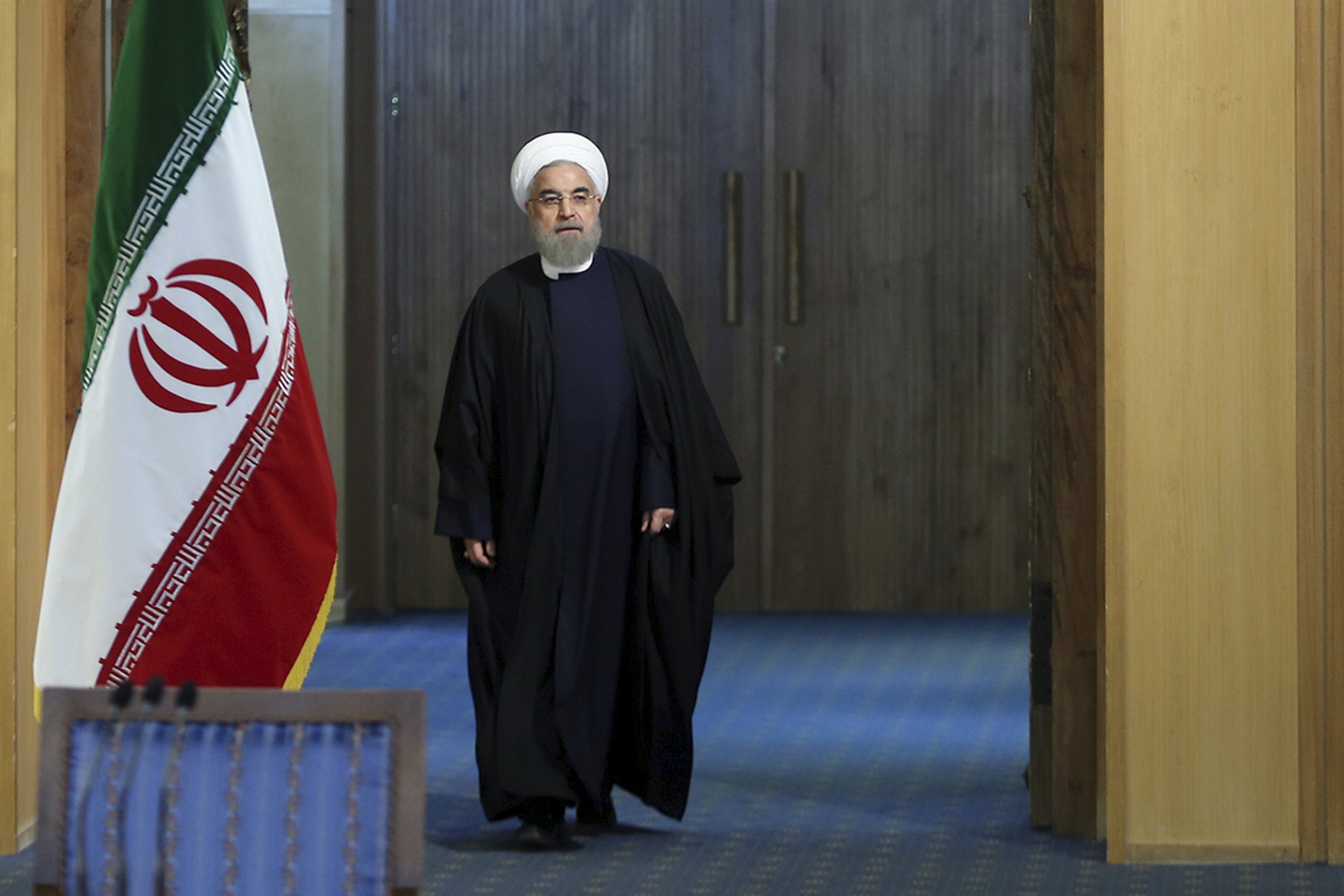
This article first appeared on the American Enterprise Institute site.
On January 12, ships belonging to the Islamic Revolutionary Guard Corps (IRGC) detained ten US sailors aboard two small boats. Contrary to initial reports, it remains unclear if either of the US boats experienced mechanical trouble before they were set upon.
What came next is not subject to any dispute: the IRGC boarded and briefly seized the US Navy vessels and photographed both their surrender and the detained US sailors, and broadcast the humiliating apology of one.
With 10 servicemen in captivity, Secretary of State John Kerry phoned his Iranian counterpart Mohammad Javad Zarif five times to resolve the situation and, within a day, the IRGC released the ten sailors and two boats, perhaps minus some of their equipment.
The White House, State Department and many analysts suggest this affirms the value of the new US-Iran diplomatic relationship. Kerry reportedly told Zarif that resolving the crisis could be "a good story for both of us." And, indeed, many analysts and supporters of recent deal-making with Iran agree.
The Woodrow Wilson Center's Haleh Esfandiari and Robert Litwak, for example, argue that the release of the sailors "is a win for [Iranian President Hassan] Rouhani and Iran's moderates."
And while I largely agree with the analysis of my colleague J. Matthew McInnis, he may be a bit too generous when he writes "On the surface, this resolution appeared a testament, as Kerry claims, to the success of the new US-Iran relationship following last July's Joint Comprehensive Plan of Action (JCPOA) on Tehran's nuclear program," even as he rightly notes that the situation is more complicated.
First of all, let me disagree with the notion that Iran's behavior in resolving this crisis is a victory for Rouhani, Zarif, or Iran's moderates:
- If that was the case, then why does Iran continue to hold American and Iranian-American hostages, several of whom were seized against the backdrop of negotiations?
- If Rouhani and Zarif really are on top, then why is it that the Supreme Leader and the IRGC continue to rule out inspection of military sites where Iran allegedly conducted work on the possible military dimensions of nuclear power?
- If Rouhani and Zarif are really on top, then does that mean they approved the firing of missiles perilously close to the USS Harry S. Truman?
- And, if Rouhani and Zarif are really empowered, then what should we make of Zarif declaring no Iranians were fighting in Syria the same day that a senior IRGC commander was subsequently killed fighting in Syria?
Unfortunately, the evidence at hand suggests not moderation but a game of good cop, bad cop. Indeed, given how Supreme Leaders Ruhollah Khomeini and successor Ali Khamenei have always looked to Rouhani as the regime's ideologically pure, Mr. Fix-It, such a scenario becomes more likely.
Don't trust me? That was the jist of Rouhani's campaign commercials in which he bragged that he was the first to call Khomeini "Imam," in the context of ascribed almost Messianic qualities to him.
But was the quick release really reflective of a sharp break with the past? True, when the IRGC captured British sailors in 2007, it held them for 13 days. Humiliation sells. Footage of them in captivity subsequently appeared in an infomercial promoting Ahmadinejad's presidential candidacy. Likewise, when Iran last year seized the Maersk Tigris, probably thinking it was a US vessel, it also released the ship. Perhaps we should judge Iranian behavior by the seizures and not simply the release.
Regardless, there are many hostages who have languished in Iranian custody for upwards of seven years so let's say the average hostage spends three years in prison. In such a case, I guess we could celebrate being above average by the notion that the IRGC would seize and humiliate American crewmen in violation of the UN Convention on the Law of the Sea if not the Geneva Conventions.
So what motivated the release? McInnis is right that Iran wants its multi-billion dollar windfall. The question then becomes, once they receive that payoff as early as next week, what incentive do they have to behave? Indeed, it is likely that such money will make the region far more dangerous for the US Navy.
Let's not reward Iran for putting out a fire it started. The real tests of whether the moderates are on top is when:
- Iran releases all its hostages and ceases further spurious arrests.
- Iran allows unfettered inspections of military sites where suspect nuclear work occurred or perhaps continues to occur.
- Iran stops its bluster in the Persian Gulf and ceases its efforts to de-stabilize regional countries.
- Iran ceases its support for terrorism.
On each of those issues, unfortunately, the prognosis is poor.
Michael Rubin is a Resident Scholar at the American Enterprise Institute. A former Pentagon official, his major research areas are the Middle East, Turkey, Iran and diplomacy.
Uncommon Knowledge
Newsweek is committed to challenging conventional wisdom and finding connections in the search for common ground.
Newsweek is committed to challenging conventional wisdom and finding connections in the search for common ground.
About the writer
To read how Newsweek uses AI as a newsroom tool, Click here.








